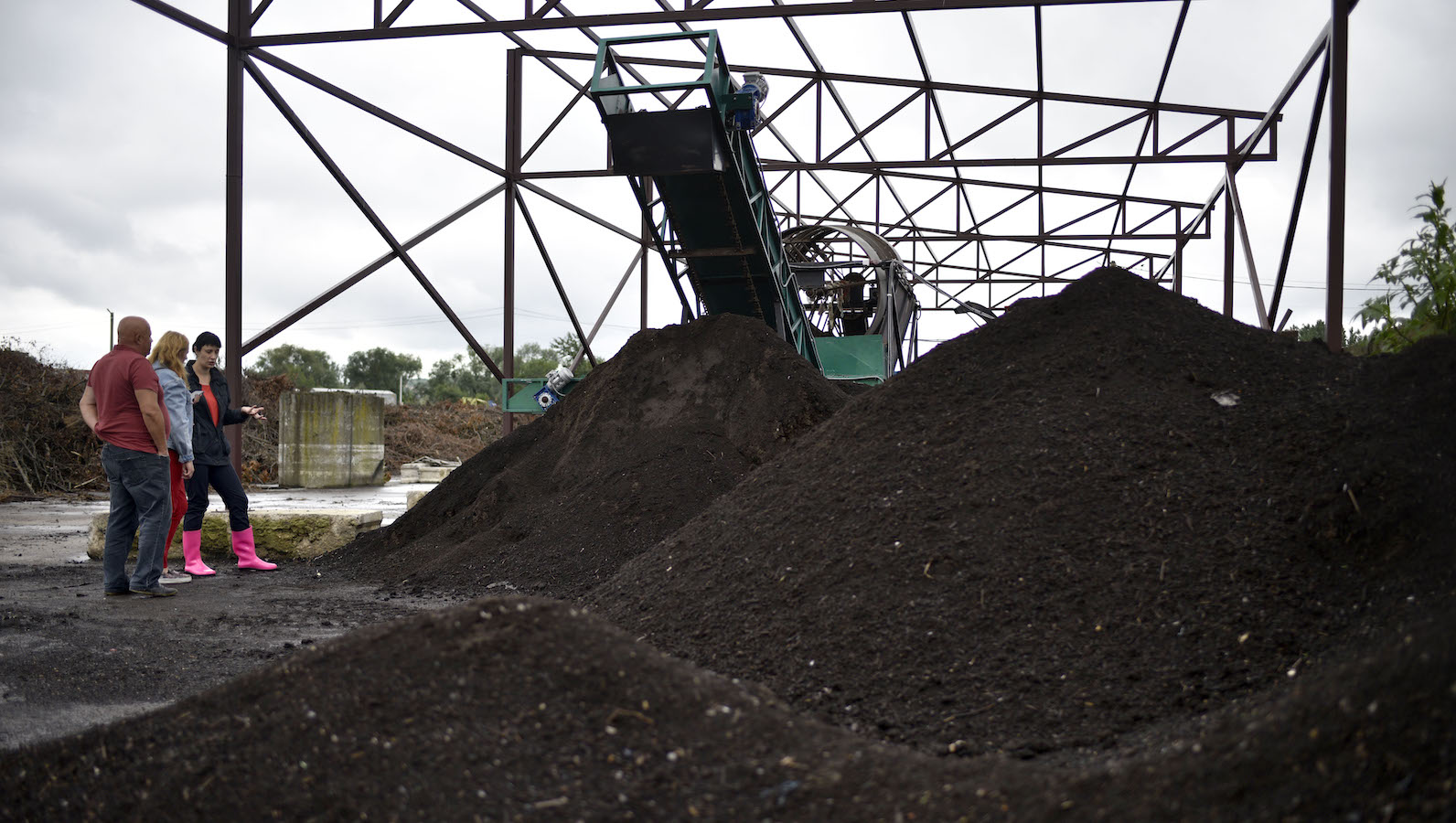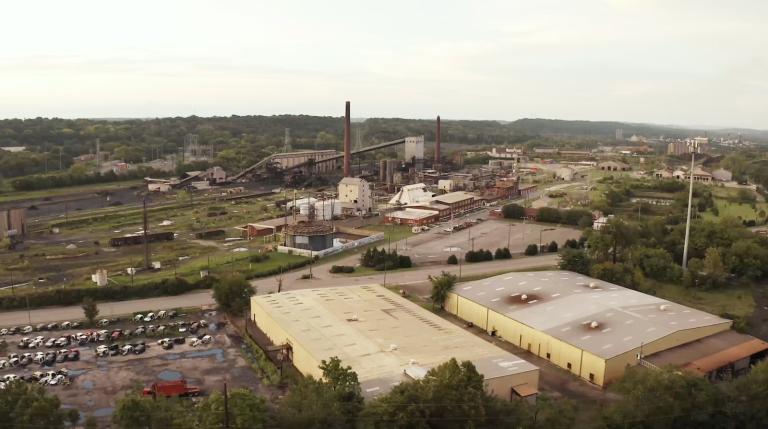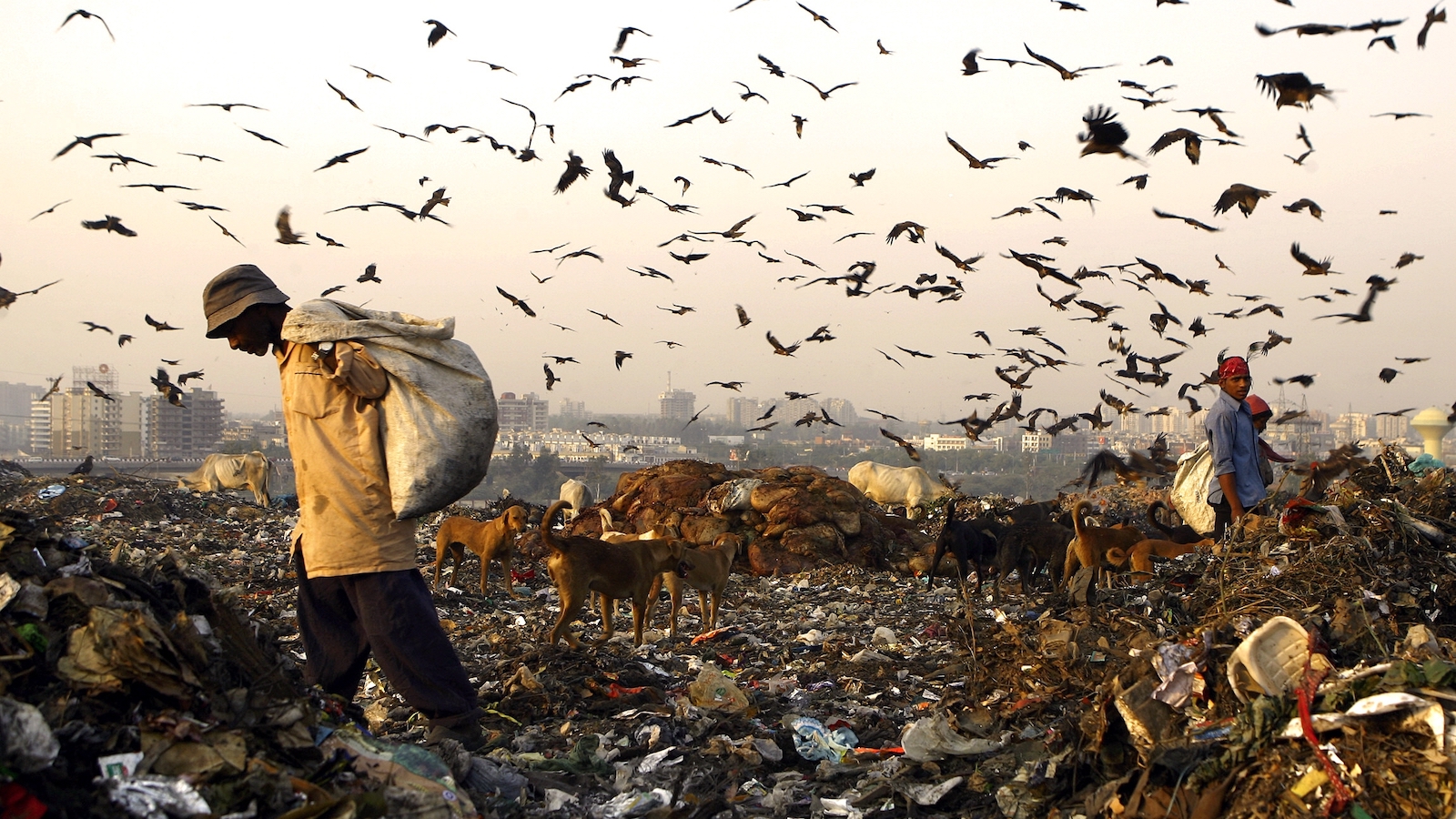Eliminating waste isn’t just a way to keep plastic out of the oceans — it’s also a climate solution.
In a new report released on Monday, the anti-waste nonprofit Global Alliance for Incinerator Alternatives, or GAIA, says that zero-waste practices like composting could help mitigate greenhouse gas emissions and create more climate-resilient communities. According to its analysis of waste collection practices in eight cities around the world, a zero-waste strategy that combines composting, recycling, and production cuts could reduce the global waste sector’s greenhouse gas emissions by 84 percent, or more than 1.4 billion metric tons per year — the equivalent of removing all cars from U.S. roadways.
“The results are really quite promising,” said Neil Tangri, GAIA’s science and policy director and the lead author of the report.
Most of the modeled emissions savings come from reducing and managing organic waste — things like food scraps and grass clippings that release methane, a powerful greenhouse gas, when they decompose. Food waste alone is responsible for some 10 percent of global climate pollution, and Tangri called it the “elephant in the room” when it comes to addressing waste emissions.
The solutions are straightforward: First, cities should collect organic matter in separate waste streams so that it isn’t contaminated with plastic, glass, and other materials. This is called “separate collection,” and it allows cities to then compost the organic matter. Seoul, South Korea, has an exemplar separation program that diverts some 96 percent of its organic waste. Other cities that GAIA looked at — like Temuco, Chile, and eThekwini, South Africa — have more work to do. Together, GAIA estimates that separate collection and composting could help the world’s cities reduce methane emissions from landfills by about 62 percent.
Treating the “dirty organic fraction” that remains — the organic matter that can’t be separated out from the general solid waste stream — can lead to even deeper reductions of up to 95 percent. This could involve adding produce-eating microbes to landfills. The microbes eat up excess food waste to prevent the release of methane. GAIA cautioned, however, against a series of strategies called “energy recovery,” which aim to capture methane from landfills and convert it into fuel or burn garbage for energy. The report says the former is “of uncertain efficacy” and the latter, because it involves burning carbon-intensive plastics that are mixed in with all that trash, produces more climate pollution than it displaces.
Other interventions can eliminate greenhouse gas emissions outside of landfills. “Source reduction,” for example, can cut climate pollution by preventing excessive amounts of stuff from being made in the first place. This could be accomplished through bans on single-use plastics, which emit greenhouse gases at every stage of their life cycle. Better reuse and recycling infrastructure can also prevent emissions by obviating the need to mine for new materials — a recycled aluminum can, for instance, takes some 95 percent less energy to create than one made of virgin aluminum.

If you take into account emissions savings from across supply chains, Tangri said that recycling, composting, and source reduction could lead to greater emissions reductions than the waste sector’s entire carbon footprint, resulting in what he calls “net-negative emissions.”
There are other climate benefits to going zero-waste, as well. Plastic bag bans, for example, not only eliminate greenhouse gas emissions from the production stage but can also reduce flood risk; those flimsy plastic bags are a top contributor to plastic litter and can clog ditches and storm drains. More compost can help restore soil health, allowing it to store carbon better and scaling back the need for fossil fuel-based fertilizers. And scaling back the need for highly polluting waste treatment activities can prevent the deaths of plants and animals that store carbon and keep ecosystems healthy.
GAIA’s report also highlights how improperly managed waste facilities can be breeding grounds for rats and other pests, allowing them to harbor infectious diseases like dengue and yellow fever. These and other diseases are already getting a boost from climate change as it creates warmer, wetter conditions in many parts of the world.
Tangri noted important social benefits from zero-waste policies, as well, like reducing toxic air emissions from waste incineration. Expanding composting, recycling, and reuse infrastructure could also generate green jobs — potentially opening the door to better lives for waste pickers, people who scavenge landfills for valuable materials, in the developing world. In the city of Malabon in the Philippines, for example, waste pickers who were formally integrated into the city’s zero-waste program in 2017 now earn wages that are up to three times higher than what they were previously making selling recyclables to junk shops.
Tangri said he felt energized by the case studies he looked at for the report and highlighted the rapid speed with which many of them have moved toward zero-waste systems. Some cities, he said — and not just in the Global North — have gone from not separating their waste streams at all to 80 percent separation within three to five years. He recommended that more municipalities adopt these programs to address the planet’s urgent methane problem.
“We’re at a moment where people are looking at the waste sector in a more serious way than they have in the past,” Tangri saiad. “It’s finally getting the attention it deserves.”



